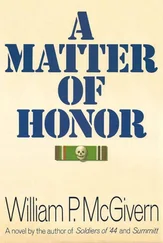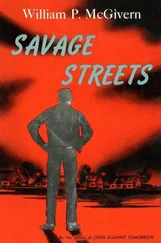William McGivern - Night of the Juggler
Здесь есть возможность читать онлайн «William McGivern - Night of the Juggler» весь текст электронной книги совершенно бесплатно (целиком полную версию без сокращений). В некоторых случаях можно слушать аудио, скачать через торрент в формате fb2 и присутствует краткое содержание. Жанр: Триллер, на английском языке. Описание произведения, (предисловие) а так же отзывы посетителей доступны на портале библиотеки ЛибКат.
- Название:Night of the Juggler
- Автор:
- Жанр:
- Год:неизвестен
- ISBN:нет данных
- Рейтинг книги:3 / 5. Голосов: 1
-
Избранное:Добавить в избранное
- Отзывы:
-
Ваша оценка:
- 60
- 1
- 2
- 3
- 4
- 5
Night of the Juggler: краткое содержание, описание и аннотация
Предлагаем к чтению аннотацию, описание, краткое содержание или предисловие (зависит от того, что написал сам автор книги «Night of the Juggler»). Если вы не нашли необходимую информацию о книге — напишите в комментариях, мы постараемся отыскать её.
Night of the Juggler — читать онлайн бесплатно полную книгу (весь текст) целиком
Ниже представлен текст книги, разбитый по страницам. Система сохранения места последней прочитанной страницы, позволяет с удобством читать онлайн бесплатно книгу «Night of the Juggler», без необходимости каждый раз заново искать на чём Вы остановились. Поставьте закладку, и сможете в любой момент перейти на страницу, на которой закончили чтение.
Интервал:
Закладка:
“Yes, honey. I’ll see you after your bath. . ”
“But I’ve got some absolutely dreadful news.”
He opened the door of the bathroom and looked in on her. The air was steamy and warm and fragrant. Kate was up to her chin in bubbles, and whorls of thick, creamy shampoo had transferred her hair into what looked like a great white Afro.
“What’s the trouble?” he asked her.
“It’s about Bob Elliott.”
“After your bath,” he said, and smiled at her and closed the bathroom door.
On this particular night, Luther Boyd would have preferred that Carrie Snow had gone home on schedule and that Kate was sleeping over with Tish or one of her other new friends. Luther Boyd did not mind taking care of himself, in fact, he preferred it; one look at him would have confirmed this in the eyes of anyone who understood the physical disciplines of thoroughbreds. He was tall and rangily built and, at the age of forty-two, still played hours of squash racquets every day, lifted weights, and worked out regularly with a judo expert, who was proficient enough to give him an active, though ultimately inconclusive, match. They played only for exercise, which put Luther Boyd at a disadvantage, for-if they had played to a conclusion-it would be no contest for him.
As a result, his stomach was as hard as something fashioned from whalebone, and as recently as six months previously, he had scored a remarkable ninety-seven over the Rangers’ obstacle training course at Fort Benning, Georgia.
His clothes camouflaged the power of his body because he preferred gabardines and coverts, fabrics which streamlined the width and strength of his shoulders with chiseled economy.
Walking into his study, Luther Boyd was frowning and rubbing his jaw with the thumb and forefinger of his left hand, one of his few physical gestures which revealed an inner anxiety. He would have preferred to be alone tonight because he was trying to solve two problems, one simple and the other very complex, and the frowning concern in his expression now made him look oddly youthful and vulnerable. This oddness stemmed from the fact that everything about Luther Boyd, from his closely cut black hair, sharply angled features, and cold gray eyes, suggested a confidence and authority of such an impregnable essence that it was difficult to imagine a problem he couldn’t solve with simply a snap of his fingers.
The first problem centered on Major General Scott Carmichael’s putatively authoritative three-volume work on the strategy and tactics of what the general described as “Phoenix Confrontation” by which he meant “guerrilla warfare.”
That was problem number one. And that was why Luther Boyd was in New York in an apartment which he had rented for three months: to check the proof of the general’s three-volume exegesis of guerrilla warfare, to verify facts, dates, and place-names and, more exasperatingly, to reshape what seemed to him a variety of warped conclusions in Carmichael’s treatise.
That was the simple problem. Since retiring from the Army in the early seventies with the rank of bird colonel, Luther Boyd had augmented the income from various substantial trust funds by free-lancing as a military consultant to publishing firms, motion-picture companies, foreign governments and, on more than one occasion, the United States Army.
Luther Boyd’s special area of expertise was guerrilla warfare. He had served five years in Vietnam with Ranger units and had volunteered to serve an additional five years as a special consultant and instructor at the Rangers’ permanent facility at Fort Benning, Georgia.
But presently he couldn’t concentrate on the first problem because of the second, which was the fact that his wife, Barbara, whom he loved and needed desperately, had walked out on him after fourteen years of marriage. And there seemed to be no way to get her back. He couldn’t beg, couldn’t explain himself to people. Colonel Boyd had given orders so long that he was almost physically uncomfortable in relationships which required a democratic exchange of viewpoints and opinions.
Pacing restlessly, Luther Boyd glanced about the large study, looking for solace and solutions from his own personal effects, the hunting prints that had belonged to his father, the deep chairs of antelope hide, the small-scale maps whose battlefields he knew from personal experience, and the portable campaign desk on which was a tray of bottles, glasses, and bucket of ice cubes. And his books and charts and maps, of course.
Luther Boyd had asked the producer, his landlord, to clear all the shelves of leather-bound collections of scripts and press clippings, and now a portion of Boyd’s personal library stood in their place: military histories, biographies, and the battle orders of classic conflicts from Hamilcar Barca to Grant and Patton.
Still massaging his hard, angular jaw in a gesture of reflexive anxiety, Boyd stood at the windows and looked down at the pedestrian and automobile traffic on Fifth Avenue and the sidewalk running parallel to Central Park. He noted something then, absently, without interest, his reaction a simple professional reflex; in the pedestrian traffic moving along the eastern side of the park, one man stood as motionless as a rock in a stream, a big man, Luther Boyd could judge, even from this height, who was simply standing there, streams of pedestrians eddying around him, and his head, topped by what seemed to be a yellow cap, was tilted back as if he were staring up at the windows of Boyd’s apartment.
Good soldiers, like good cops, trust their instincts. They try to understand an unnatural silence on a battlefield; they try, and frequently succeed, to define the cannon or tank beneath nets of camouflage; and with a combination of experience and instinctual perceptions, they sense the movements of troops, know well in advance the vectors of attack and the possible collapse of flanks.
And if these martial nuances were correct, the reserves would be committed in time and those flanks would hold like solid walls of iron and will.
And because Luther Boyd was an expert in military tactics and strategy, he was wondering idly, but without real interest (in truth, distracting himself from thinking of Barbara), why this big man was standing motionless in the rush hour when everyone was hurrying for trains and buses and home.
Kate ran into the room, and Luther Boyd swung his daughter up in his arms and sat down with her in one of the deep suede chairs. She had changed into plaid slacks and a light-blue cashmere sweater whose color flattered her blue eyes and shining blond hair. Straight from her bath, she was as fragrant as a bar of fresh soap.
“Now what’s all this about Bob Elliott?” he said, after she had given him a hug and a kiss.
Kate told him about their betrayal with flashing eyes and ferocious zest, but when she finished, her mood changed, and she sighed and said, “I really felt a little bit sorry for him afterward, because he knew that I knew he was lying.”
“I wouldn’t waste any sympathy on him,” Boyd said. “He broke his word to you and he lied to you because he didn’t have the guts to tell you the truth.”
Kate looked into her father’s eyes, then looked away from him and with the tip of a finger drew a slow, small circle around the buttonhole in the lapel of his gabardine jacket.
“Daddy, if Mommy’s never coming home, shouldn’t we talk about it?”
He searched vainly for words to answer her question, and the silence between them became awkward and embarrassing. At last he said,
“Very well, we’ll talk about it.”
They heard Harry Lauder barking with excitement and anticipation at the front door of the living room.
“I’d better take him out for a walk first,” she said. “He knows it’s time.”
Читать дальшеИнтервал:
Закладка:
Похожие книги на «Night of the Juggler»
Представляем Вашему вниманию похожие книги на «Night of the Juggler» списком для выбора. Мы отобрали схожую по названию и смыслу литературу в надежде предоставить читателям больше вариантов отыскать новые, интересные, ещё непрочитанные произведения.
Обсуждение, отзывы о книге «Night of the Juggler» и просто собственные мнения читателей. Оставьте ваши комментарии, напишите, что Вы думаете о произведении, его смысле или главных героях. Укажите что конкретно понравилось, а что нет, и почему Вы так считаете.












